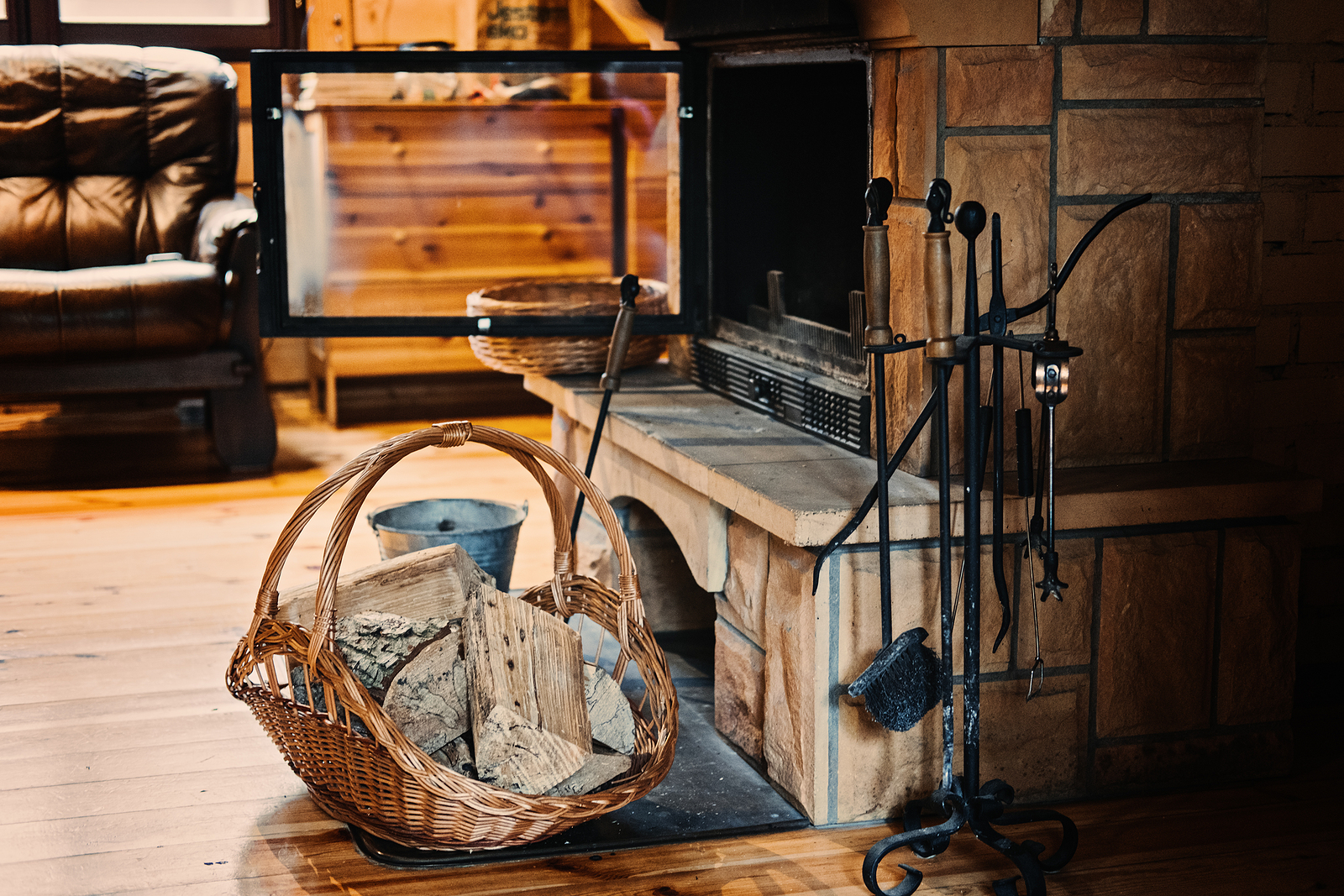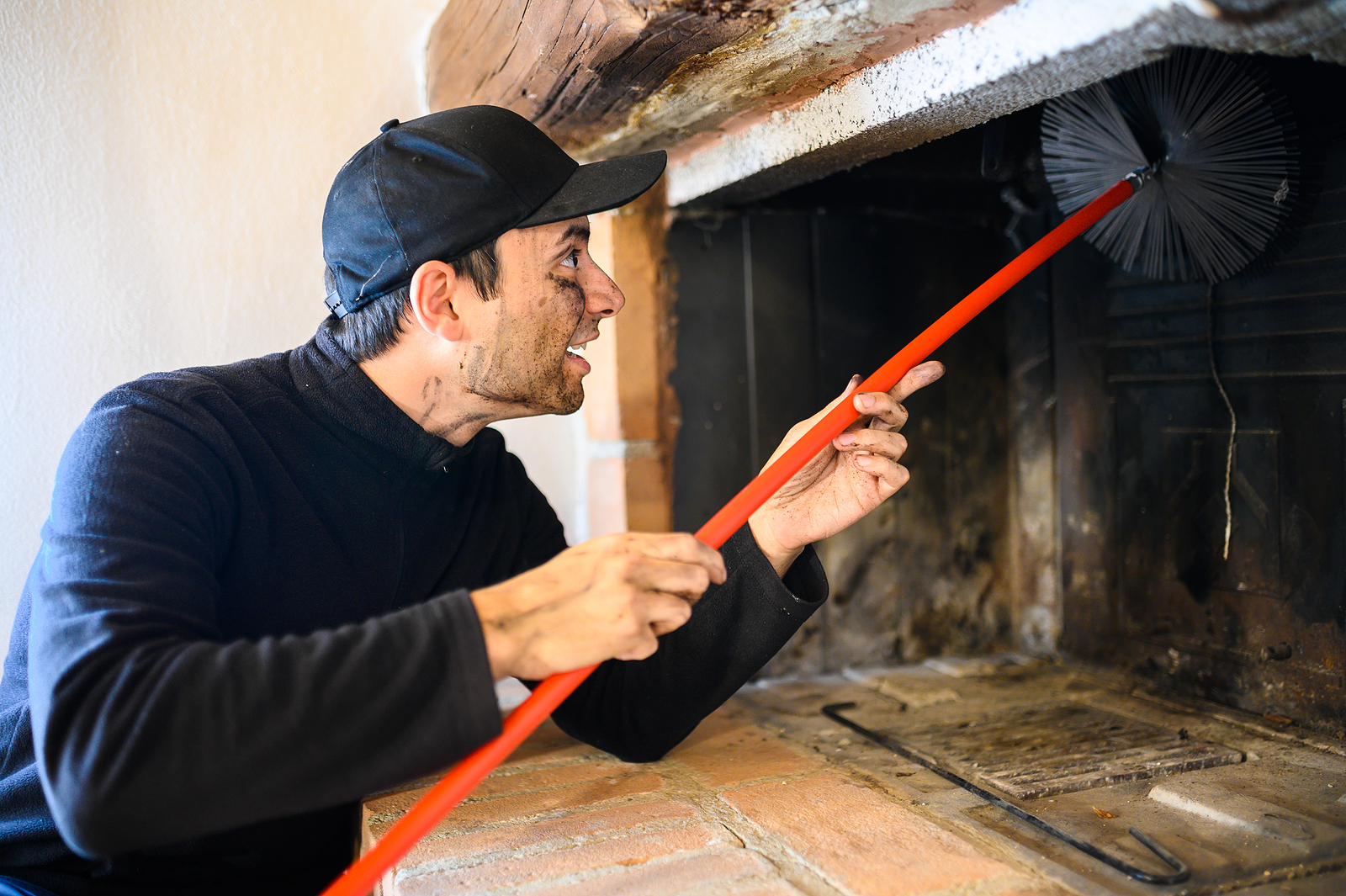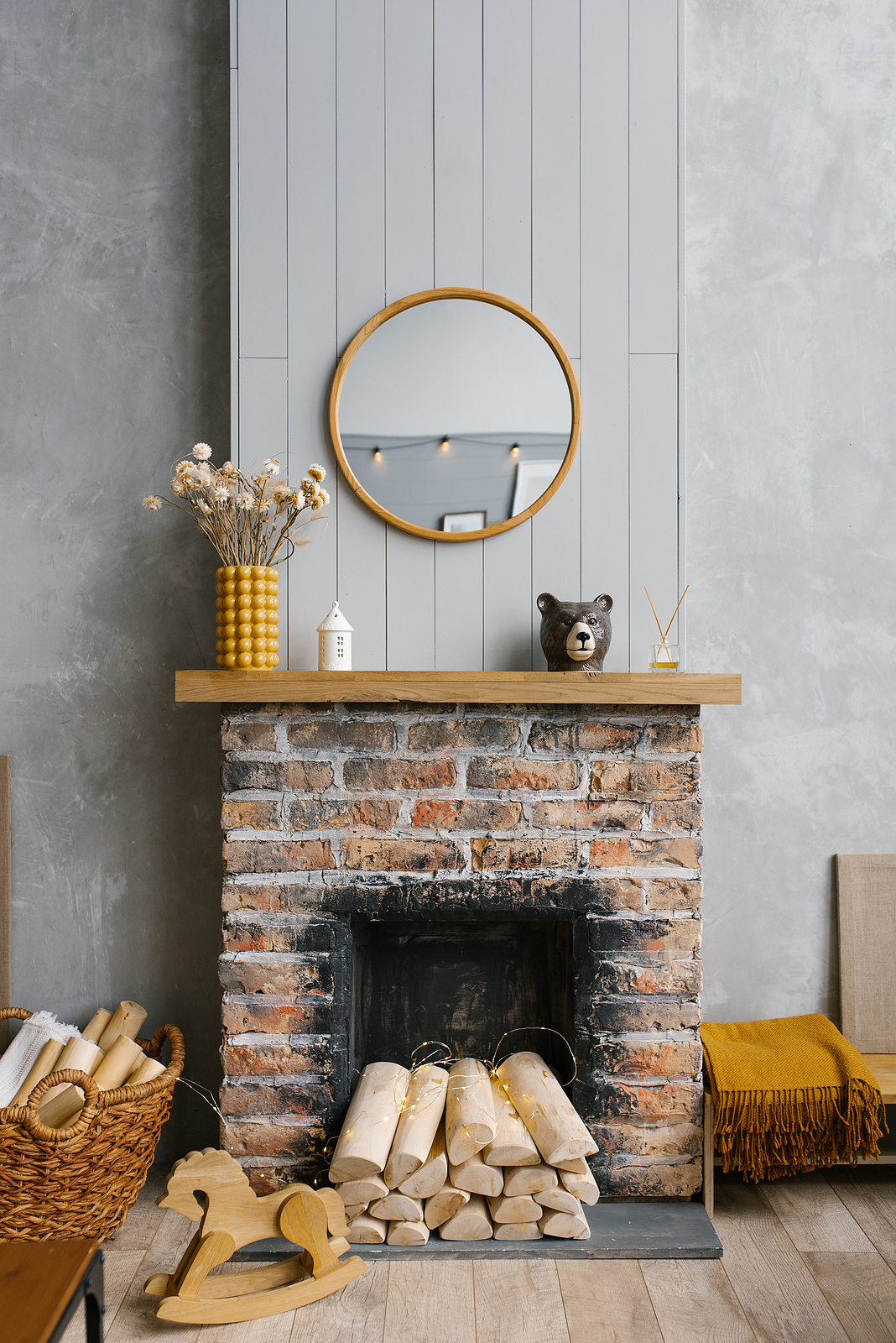While slogging through a snowy commute, is there anything more comforting than envisioning your cozy home, complete with a crackling fire?
Now, imagine that picture also includes a cup of hot cocoa or a glass of your favorite wine. It’s something to look forward to, isn’t it?
There are just a few things you need to do to make that dream a safe winter reality.
Before You Call a Chimney Sweep
Chimney sweeps handle one of the dirtiest, most unpleasant home maintenance tasks. But, (usually) they only work with fireplaces that don’t need other maintenance or repairs. You don’t want to call out a chimney sweep if what you really need is a mason … or pest control.

Before calling a sweep, check for:
- Cracks in your fireplace, or on the exterior of your chimney. You’ll need a powerful flashlight and possibly a ladder. If you notice any cracking, call a licensed mason as fireplaces need special materials. If you suspect that faulty flashing is causing leaks, call a roofer.
- Branches hanging over your chimney. These become dangerous if a spark flies out the top. It’s unlikely that your fireplace has a steel cap. Even then, branches can restrict the chimney draft causing problems inside.
- Animal nests inside the chimney. If critters have moved into your chimney, there’s a good chance you’ve heard them arranging their nest. But you should still take a look from both sides (inside the fireplace and down the chimney). If you spot the tell-tale signs of birds or animals, you may need to call animal control.
Get the chimney cleaned
Over time, creosote, a flammable substance, can accumulate inside the chimney, increasing the risk of a chimney fire.
Hire a professional chimney sweep to clean out any creosote and ensure that your chimney is clear of debris and obstructions.
Most experts recommend a professional cleaning of your chimney about once a year (or every 80 fires). The Chimney Safety Institute of America offers advice on how to hire a chimney sweep. Also, be sure to check reviews on Yelp.com and similar review sites.

Clean the firebox
The firebox is the area where the fire burns. A clean firebox not only improves the aesthetics but also provides a better surface for the wood to burn efficiently.
Remove the grate and scoop out the burnt wood chunks, ash and other debris. Use a small hand broom to sweep down the walls and floor of the firebox.
Finally, use a vacuum cleaner or shop vac to suck up any remnants that remain.
Don’t light that fire yet!
Take a tour of your home to test your smoke detectors and, if you have them, carbon monoxide detectors.
“You should always check the manufacturer’s instructions for the proper method of testing your smoke detector and fire alarm,” cautions the editors at AllState.com. Use Google to search for the model number, which is listed on the alarms.

Now all you need to do is stock up on firewood. And, during the winter, don’t forget to clean out the ashes about once a week, or whenever they’re about an inch thick.
If you’re up for it, why not store those ashes in a bucket until summer? They make a delicious treat for flower and vegetable beds, according to the Oregon State University Extension Service.




